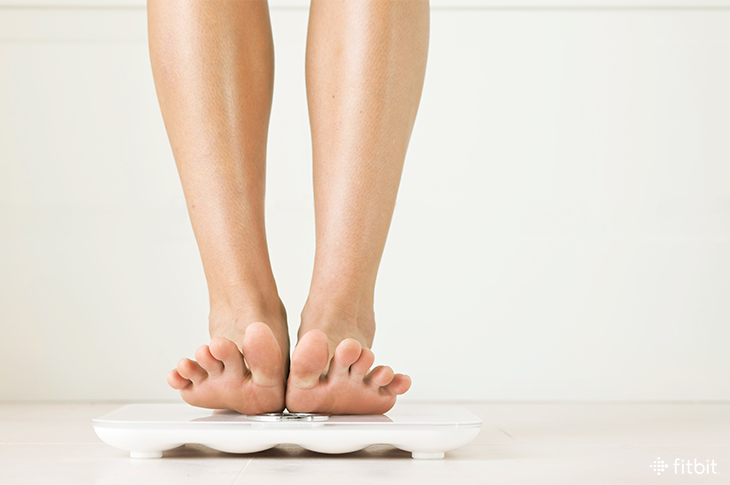
It’s an old trope of the classically skinny woman: she must have the self-control of a saint, and the willpower of Wonder Woman—especially when the chocolate cake comes by at the dinner table. (She’ll just take coffee, thanks.)
Weight, in fact, may have very little to do will willpower. In 1982, researchers Bennett and Gurin devised the weight set point theory to explain why repeat-dieters can never seem to keep the weight off for good. They explained there is thermostat-like control system ingrained in each person, which determines how much fat their body thinks it should carry. For some, that percentage is high. For others, it’s low.
In effect, attempting to lose weight is also attempting to override that pre-set point, which is sort of like a jammed-on switch. From an evolutionary perspective, the body thinks cutting calories is the beginning of starvation—and the body fights back accordingly by lowering its metabolic rate. “As you lose weight, hormones are released from the gut and hypothalamus, driving you to eat again,” says Reshmi Srinath, MD, an assistant professor of Medicine, Endocrinology, Diabetes and Bone Disease at the Icahn School of Medicine at Mount Sinai. “The body wants to revert back to where it was.”
Srinath says the obesity epidemic is a complicated health problem to solve, because it is incredibly unique to each person. “Every person’s weight is influenced by environment, medications, what we eat, how much we exercise,” she explains. “And changing that weight set point for good is something that’s still being researched. We can lose weight with diet and medications, but every person has their own genetic makeup.”
While researchers are still trying to figure out exactly how to alter that mysterious set point over the long-term, early studies have hinted that a few factors can help sustain weight loss.
Keep Increasing Exercise
While you might win your weight-loss battle in the kitchen, exercise may just be what keeps the pounds off for good. “Exercise helps a lot,” says Srinath. “Metabolic rate declines as you lose weight, but exercise raises the metabolic rate so you can lose more and sustain your weight loss better.” How much exercise? The Department of Health and Human Services recommends 150 minutes of moderate exercise each week, but “as much as you can is always helpful,” says Srinath.
Don’t Stop Your Regimen After Reaching Your Goal
Lots of people partake in weight-loss regimes designed to help you lose weight quickly. But more often than not, these are recipes for gaining the weight back as soon as you stop with the stringent routine. “Being able to sustain a healthy eating style is important, balancing your carbs, your protein and your fat,” says Srinath. “This is why it’s never smart to cut a food group entirely. No diet should be completely restrictive.” Srinath goes by the plate-division method for eating smart. Half your plate should be veggies, a quarter should be starch (one to two fist sizes), and a quarter should be protein (about the size of your palm). If you need additional support, clinical weight counseling or behavioral modification may also be helpful.
Ask Your Doc to Check for Secondary Factors
If you can’t seem to shed the pounds—no matter what method you try—Srinath says she always checks for secondary issues that might be slowing progress and stunting weight loss. “I test for things like thyroid imbalance or thyroid disease, especially if there are other symptoms,” she explains. “I screen for those just to make sure there are no other unintentional underlying causes for weight problems.”
Stay Positive
Most importantly, have a positive attitude as you strive to reach your health goals—especially those weight-related ones. “I try to remind patients that losing just five percent of your total body weight is tremendous for reducing the risk of comorbidities, like blood pressure and diabetes,” says Srinath. Even slow progress is good progress. Stay the course.
What’s your weight loss plan? How will you be celebrating your progress and staying the course? Join the conversation below!
This information is for educational purposes only and is not intended as a substitute for medical diagnosis or treatment. You should not use this information to diagnose or treat a health problem or condition. Always check with your doctor before changing your diet, altering your sleep habits, taking supplements, or starting a new fitness routine.

Hi, I agree. I doesn’t matter how much I restrict myself, I always seem to put the weight back on. I realised that a little excercise each day helps me to keep the pounds off. It really is a lifestyle choice and not dieting. As long as I am consistent I can keep the fat off.
Hi There im going through menapause and finding it hard to loose weight but not giving up
Menopause is an issue that stands all on it’s own. Trying to lose weight on top of it, well, you said yourself, it’s harder! Slow and steady works. Be positive. Pay attention to what your body is saying. Experiment with your diet and your activity. What worked before menopause may just not work for you now. It’s all a balancing act. Get enough sleep. Get enough water. Food and exercise in moderation. Be good to yourself.
Instead of dieting I set my steps goal at 10,000 but then started exceeding this. Weight started to drop and without realizing I started to cut how much I eat. I didn’t change what I eat or what I drank (which at times is OTT!). Lost about 20lbs over a year. Notice weight can swing easily by 5lbs either way day to day. Did 10 minutes of exercises most mornings to help my back and with all the walking lost 2inches of waist.
Would love to eat like that. But, I am a sugar eater. My eating the food is fine But after eating is the problem. I want desert.
Brenda, try adding a magnesium supplement to your regimen 🙂 sugar cravings can be a sign of mag deficiency